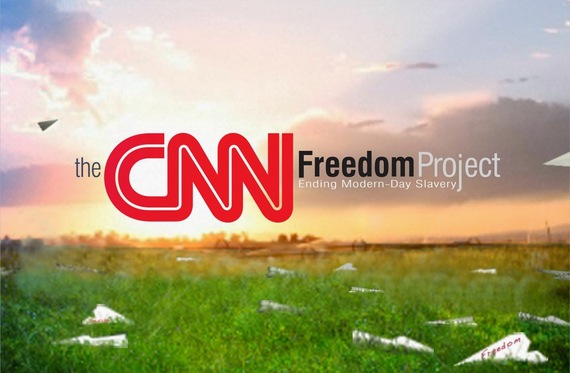It's funny where the stroll takes me to sometimes; this time it has taken me to the Royal Television Society News Channel of the Year, Cable News Network!
CNN has a freedom project that has been dedicated to fighting modern-day slavery since 2002, and considering the fact that child labour is one dominant form of slavery in this generation, I decided to have a stroll with Mr. Leif Coorlim, the executive editor of the CNN Freedom Project.
We talked about poverty and the global fight against child labour; the contribution of the justice system in eradicating child labour; and lots more. It was really fun strolling with Mr. Leif, in fact it was a dream come true for me, and I really hope after reading this you'd get inspired to join this global war against child labour. Well, here is what we discussed.
Ebenezar: Thank you so much for making out time to talk with me sir, despite your busy Schedule
Leif: You're welcome Ebenezar.
Ebenezar: CNN is a global news brand that reaches millions of people around the world. What inspired CNN to start the Freedom Project?
Leif: The CNN Freedom Project was started based on the premise that slavery still exists, which is a shame to us all. CNN wanted to bring its reach and resources into the fight so that the people working on the ground to save lives--the true heroes--would get the recognition and help they need and deserve.
Ebenezar: Okay, The ILO launched 'World Day against Child Labour' in 2002 and the CNN Freedom Project was launched in 2011. How far have we gone in eradicating child labour globally? And how much more do we still have to do?
Leif: The United Nations and International Labour Organization are working to address child labor around the globe. Obviously, it is an issue that resonates among millions of families, but it only touches human trafficking; however, child labour is also when a child is forced to work through coercion, violence or the threat of violence.
Ebenezar: The global meltdown, the Euro zone crisis, and increased unemployment have all added to the rise in poverty around the world. Don't you think poverty is one major contributor to child labour around the world? Because I've seen kids hawking on the highway who will tell you, they can't stop hawking, if not they'd have nothing to eat. What do you have to say about this?
Leif: Poverty is absolutely one of the major indicators that a person may become a victim of human trafficking. But it's not the only one. Not having a strong social support system or living in a country where there isn't an adequate rule of law are two other indicators. But with regards to poverty, obviously when people are desperate for work or food and are trying just to survive, they may agree to take risks that might make them vulnerable to being exploited. That doesn't excuse the people who are exploiting and abusing these people. From the laws against slavery that are currently on the books in every nation, It is up to governments to enforce their own laws and it is up to people all over the world to raise their voices to make sure their governments know that indifference to human trafficking won't be tolerated.
Ebenezar: Last month you were at the sentencing of a child pornographer who abused 8-year-old girls; that story was really touching. Now, let's talk about the Justice system, do you think stronger penalties need to be given to these kind of people? Is the justice system doing enough to help the war against child labour?
Leif: I think you have to look at the sentencing of individuals convicted of trafficking on a case-by-case basis. Ultimately, it is up to a judge or jury to decide punishment according to the laws in their country. The penalty should fit the degree of the exploitation and the abuse. As Abraham Lincoln is quoted as saying, "Those who deny freedom to others, deserve it not for themselves."
Ebenezar: Yeah, that's very true. Also, Manny Pacquiao was part of your recent documentary ''The Fighters'' and i'm just wondering, don't you think the fight against child labour/modern-day slavery will get a huge boost if many more celebrities and social figures pledge their support to this campaign?
Leif: Celebrities and social leaders have a platform and a huge following, and I know that if many more celebrities get involved in this fight against human trafficking, they will really bring awareness and pressure to those who would like to remain hidden in the shadows, while making money off the suffering of other people. So Yes, Social figures can help a great deal. Manny Pacquiao has been a tremendous fighter in the battle against human trafficking, especially with his work in the Philippines. I can't wait to see who will be the next big star to join the battle.
Ebenezar: I can't wait too, thank you so much for your time Mr. Leif, You're doing a great job. Good luck on any future Projects the CNN Freedom Project will embark on.
Leif: Thanks for your interest Ebenezar!
This interview was first published on THE STROLL on July 1st, 2013.

